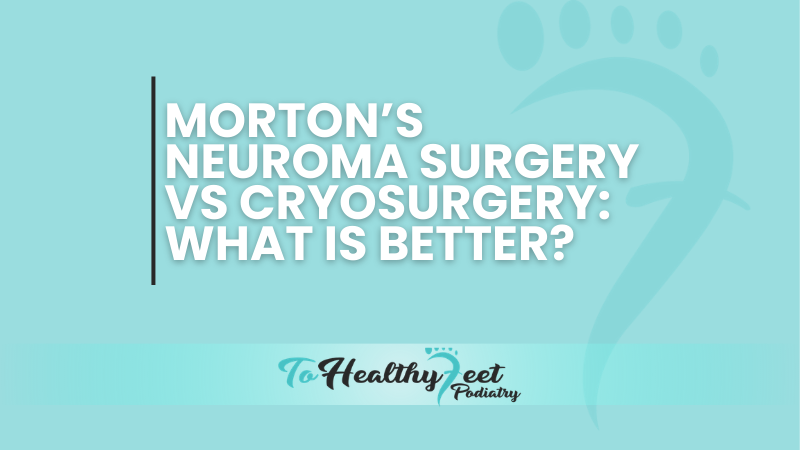Foot Health Is Overall Health
Our feet are the unsung heroes of our bodies. From carrying us to our daily activities to providing stability and balance, they play a crucial role in our overall well-being. However, when it comes to taking care of our bodies, we often overlook the importance of foot health. Alongside proper footwear and regular exercise, nutrition plays a vital role in maintaining strong and healthy feet.
Calcium
One of the essential nutrients for foot health is calcium. Calcium is not only crucial for building and maintaining strong bones but also for the health of our foot's 26 bones. Dairy products like milk, cheese, and yogurt are excellent sources of calcium. Leafy green vegetables, such as kale and spinach, as well as fortified plant-based milk alternatives, like almond or soy milk, are great options for those following a vegan or lactose-free diet.
Vitamin D
Vitamin D is another vital nutrient that works in conjunction with calcium to promote healthy bones and feet. Our bodies naturally produce vitamin D when exposed to sunlight, but it can also be obtained through certain foods. Fatty fish like salmon and mackerel, egg yolks, and fortified cereals are excellent sources of vitamin D. Ensuring adequate vitamin D intake can help prevent conditions like stress fractures and osteoporosis.
Anti-Inflammatory Food
To reduce inflammation and promote overall foot health, incorporating anti-inflammatory foods into our diet is beneficial. Omega-3 fatty acids, found in fatty fish, walnuts, chia seeds, and flaxseeds, have been shown to reduce inflammation and support joint health. Including these foods in our meals can help alleviate foot pain caused by conditions such as arthritis or plantar fasciitis.
Collagen
Collagen is another important component for foot health, as it provides strength and flexibility to our feet's ligaments and tendons. Foods rich in collagen-boosting nutrients include citrus fruits, berries, and leafy greens, which are high in vitamin C. Consuming lean meats, fish, and bone broth can provide the necessary amino acids that support collagen production.
Antioxidants
Maintaining good blood circulation is vital for foot health, as it ensures proper delivery of oxygen and nutrients to the feet. To improve circulation, incorporate foods that are rich in antioxidants, such as berries, dark chocolate, and green tea, into your diet. These foods help protect blood vessels and promote healthy blood flow, reducing the risk of conditions like peripheral artery disease.
Water
Lastly, staying hydrated is crucial for overall foot health. Water is essential for maintaining the elasticity and flexibility of our foot's connective tissues. Aim to drink at least eight cups of water per day and increase your intake during hot weather or periods of physical activity. If you struggle with drinking plain water, you can infuse it with fresh fruits or herbs for added flavor.
Foot Care Is Health Care At To Healthy Feet-Manhattan
Prioritizing foot health and incorporating a nutritious diet into your lifestyle can go a long way in maintaining strong, healthy feet. By consuming foods rich in calcium, vitamin D, omega-3 fatty acids, collagen-boosting nutrients, and antioxidants, you can support your foot's bones, reduce inflammation, and improve circulation. Staying hydrated and practicing good foot hygiene are crucial for optimal foot health. Alongside a proper diet, wearing well-fitting shoes and engaging in regular exercise can further enhance foot strength and flexibility. Remember, individual needs may vary, so consulting with a healthcare professional or registered dietitian is important for personalized advice. Invest in your feet today by nourishing them from the inside out, and you'll be taking confident steps towards a healthier, happier you.
The team of foot doctors at To Healthy Feet in Manhattan can expertly assess all types of foot conditions and develop a personalized treatment strategy based on the severity of your symptoms, your lifestyle, and your goals for treatment. We provide accurate diagnosis and comprehensive foot and ankle care and have the tools and technologies necessary to provide a variety of tailored treatment approaches including custom orthotics, regenerative medicine, conservative interventions, and even minimally invasive surgery (when needed) at each of our Manhattan Podiatry Clinics. If you are experiencing pain due to a hammertoe deformity or any other foot or ankle condition pain, call To Healthy Feet Podiatry at 1-917-398-3668 or fill out the contact form to book your appointment at our Upper East Side, Times Square, Midtown Grand Central, or Downtown Manhattan locations today.
FAQ
Q: How does nutrition impact foot health?
A: Proper nutrition plays a significant role in foot health by providing essential nutrients that support bone strength, reduce inflammation, promote circulation, and maintain the flexibility and integrity of connective tissues. Nutrients like calcium and vitamin D are crucial for bone health, while omega-3 fatty acids and antioxidants help reduce inflammation and improve blood flow. Collagen-boosting nutrients aid in maintaining the strength of ligaments and tendons in the feet. Overall, a well-balanced diet can enhance foot health and reduce the risk of foot-related issues.
Q: Are there specific foods that can help with foot pain?
A: Yes, certain foods have properties that can help alleviate foot pain. For example, foods rich in omega-3 fatty acids, such as fatty fish, walnuts, and flaxseeds, have anti-inflammatory effects that can reduce pain caused by conditions like arthritis or plantar fasciitis. Citrus fruits, berries, and leafy greens high in vitamin C support collagen production and promote the health of ligaments and tendons. Incorporating anti-inflammatory spices like turmeric and ginger into your meals can provide pain-relieving benefits for your feet.
Q: What is good foot health?
A: While nutrition is an essential component of foot health, it is not a standalone solution for all foot problems. Proper footwear, regular exercise, good foot hygiene, and seeking professional medical advice when needed are equally important. Foot problems can have various causes, such as structural issues, injuries, or underlying medical conditions. A comprehensive approach that combines proper nutrition with other foot care practices and appropriate medical intervention is crucial for effectively addressing and managing foot problems.




